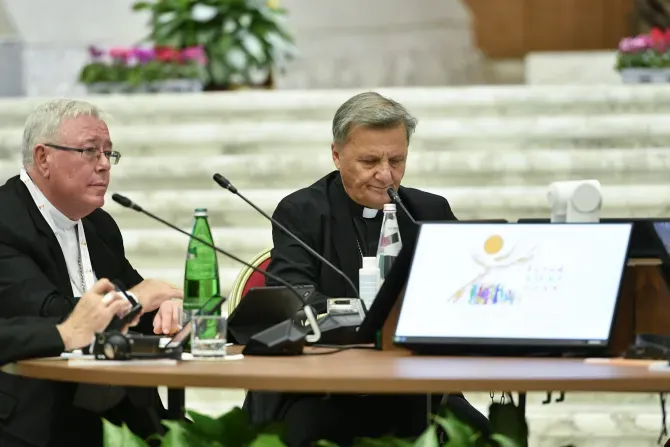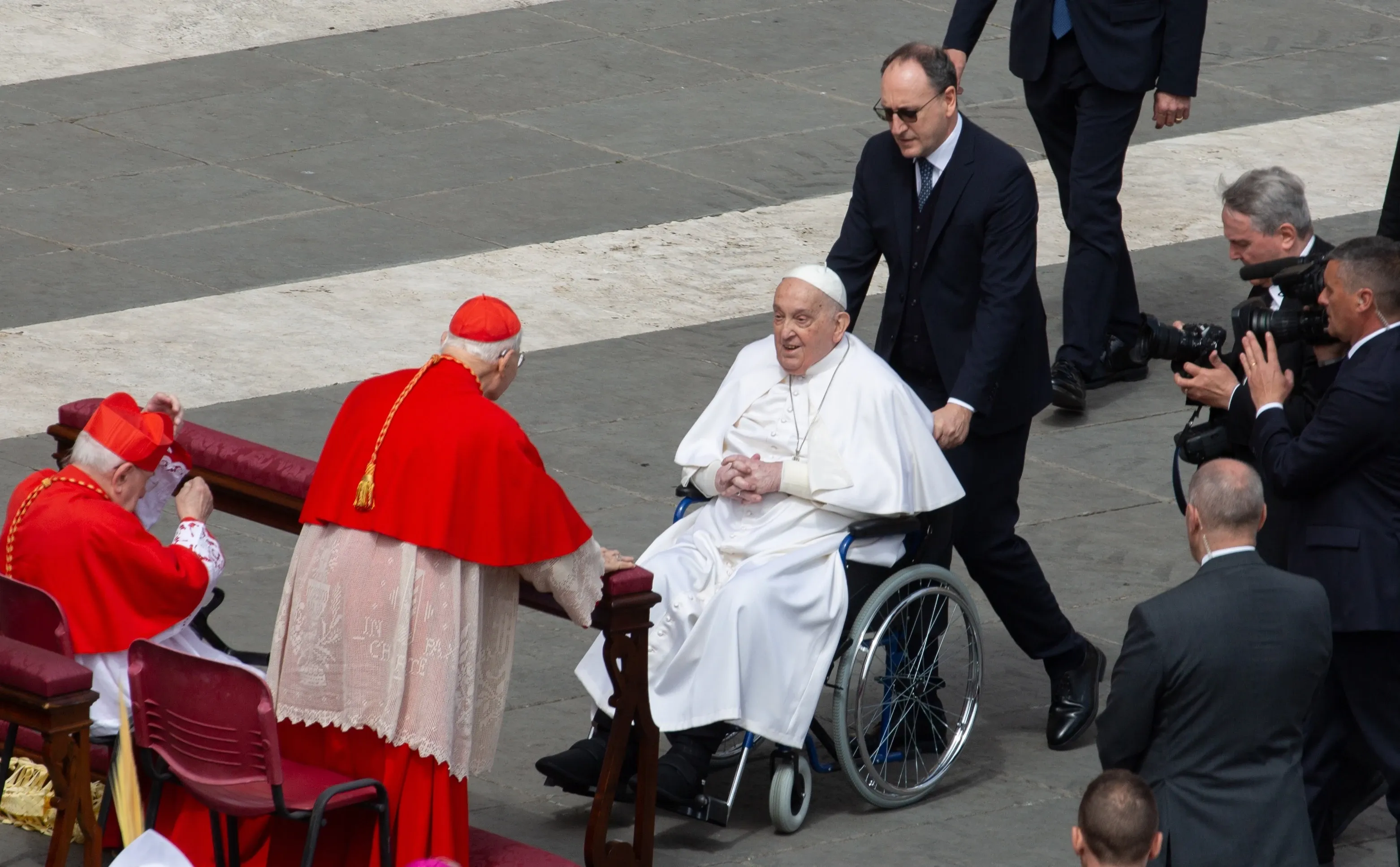As relator general, the Luxembourg cardinal addresses participants at the beginning of each new discussion module. Oct. 9–12 the synod will focus on section B1 of the Instrumentum Laboris, or guiding document.
Section B1 of the Instrumentum Laboris asks people to reflect on “the concrete daily life of Christian communities” and “the question of whether there are limits to our willingness to welcome people and groups, how to engage in dialogue with cultures and religions without compromising our identity, and our determination to be the voice of those on the margins and reaffirm that no one should be left behind.”
Specific topics for discernment cover the greater inclusion of people with disabilities, the divorced and remarried, LGBTQ+ Catholics, refugees and migrants, and homeless people.
Synod participants are also invited to reflect on interfaith and intercultural dialogue, justice and charity, relations between Eastern and Latin Catholics, and ecumenism.
Hollerich said he was told that discussion of section B1 would be the time during the synod when “tensions will rise.”
“We are not afraid of tensions,” the cardinal said. “Tensions are part of the process, as long as we consider ourselves to be sisters and brothers walking together.”
Anna Rowlands, a professor of Catholic social thought and practice at Durham University in Durham, England, also presented on communion, opening with a reference to a question posed to the assembly by Father Timothy Radcliffe, OP: “Can we find the courage to encounter reality, as it really is?”
“He placed before us the paradox of our call to be Christlike: to hear, see, and feel the condition of our world, and yet to be gently honest with ourselves that we do not find bearing reality so easy,” she said.
Section B1 of the Instrumentum Laboris, Rowlands said, “invites us to grow in communion by reflecting with humility with those who are vulnerable, suffering, or weak, on the vulnerabilities and weaknesses of the Church.”
“We ask with courage how we might be closer to the poorest, more able to accompany all the baptized in a variety of human situations, disposed of false power, closer to our fellow Christians, and more engaged with our particular cultures,” the theologian added.








